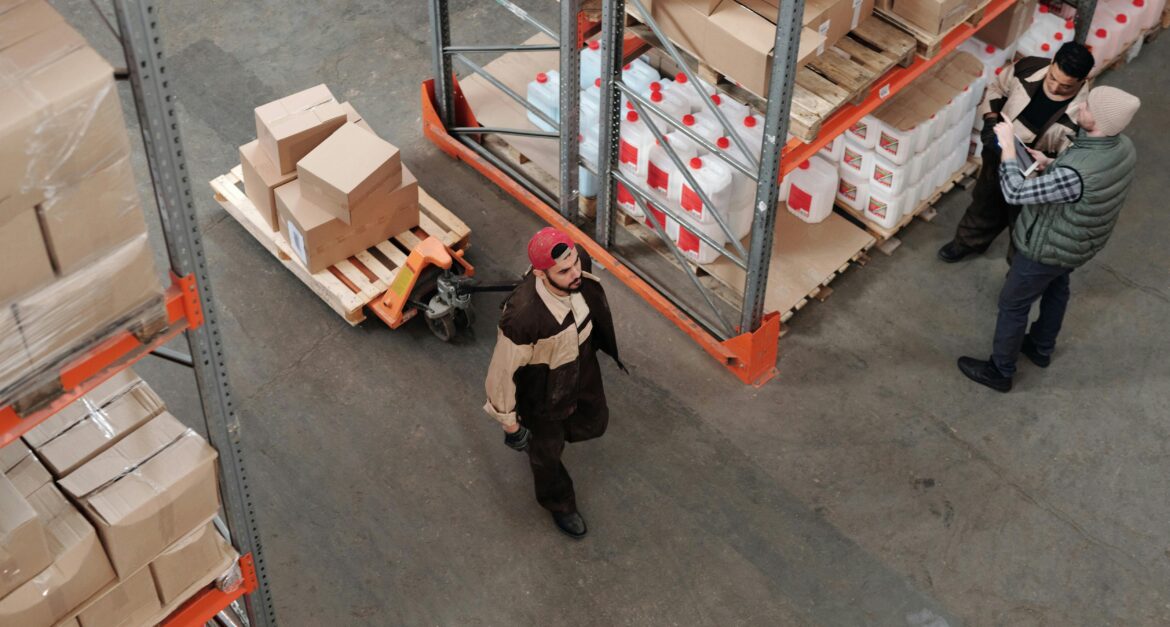
Introduction: The Growing Need for Strategic Warehousing
Saudi Arabia’s economy is undergoing a remarkable transformation. With Vision 2030 promoting diversification, infrastructure development, and a thriving e-commerce sector, the logistics landscape is more dynamic than ever.
Businesses across the Kingdom face a pressing challenge: how to manage inventory effectively while ensuring timely distribution and minimizing costs.
This is where warehousing services in Saudi Arabia play a crucial role. Far beyond simple storage, modern facilities offer integrated warehousing and distribution services, technology-driven inventory management, and specialized solutions for a wide range of industries.
Choosing the right warehousing distribution services is no longer a luxury—it’s essential for companies seeking growth and operational excellence.
Understanding Warehousing Services
If you’re asking, “what are warehousing services?”, the answer extends beyond keeping products safe in a warehouse. At its core, warehousing services encompass storing, managing, and distributing goods efficiently.
Key Components of Warehousing Services
- Secure Storage: Protecting inventory from theft, damage, or environmental hazards.
- Inventory Management: Using advanced systems for real-time stock tracking.
- Order Fulfillment: Picking, packing, labeling, and preparing products for shipment.
- Distribution Management: Coordinating deliveries across cities, regions, and internationally.
Modern facilities also include value-added offerings, such as data warehousing services, cold chain storage, and bonded storage for customs-controlled items.
Many businesses now rely on 3PL warehousing services to outsource the complexities of storage, inventory, and logistics, letting them focus on core operations.
Prominent Features of Warehousing Services in Saudi Arabia
Strategic Location
Location matters more than ever. The Kingdom is geographically well-positioned, bridging Europe, Asia, and Africa. Prime warehouse locations include:
- Jeddah: Close to Jeddah Islamic Port, ideal for import/export operations.
- Riyadh: Centrally located for nationwide distribution and e-commerce fulfillment.
- Dammam: A key hub for Eastern Province industrial zones and GCC trade.
Being close to ports, airports, and highways reduces transit time, cuts costs, and allows for faster delivery, a key factor for competitive advantage.
Technology Integration
Technology is a differentiator in modern warehousing:
- Warehouse Management Systems (WMS): Real-time stock monitoring, automated reordering, and reporting.
- Data Warehousing Services: Collect and analyze operational data for smarter logistics decisions.
- Automation & Robotics: Reduce manual labor, increase speed, and improve accuracy in picking and packing.
- IoT Monitoring: Ensure temperature, humidity, and security standards are consistently maintained.
Such systems transform a warehouse from a passive storage space into a dynamic, responsive logistics hub.
Specialized Storage Solutions
Different industries have unique storage needs:
- E-Commerce: High turnover, rapid order fulfillment, and reverse logistics for returns.
- Pharmaceuticals: Strict temperature and humidity control to comply with SFDA regulations.
- Oil & Gas: Heavy machinery and hazardous materials require specialized handling.
- Food & Beverage: Cold chain warehousing to maintain freshness and comply with safety standards.
By offering tailored solutions, warehouses deliver more than space—they provide strategic value.
The Role of 3PL Warehousing Services
Many companies find running their own warehouses costly and complex. This is where 3PL (Third-Party Logistics) come in.
Key advantages include:
- Shared facilities reduce overhead and operational costs.
- Scalable operations allow adjustment based on seasonal demand.
- Expert handling of inventory, fulfillment, and distribution.
- International reach with customs support for imports and exports.
Example: A Riyadh-based electronics retailer outsourced to a 3PL provider. This change cut delivery times to GCC countries by 40% and reduced storage costs by 25%, while improving order accuracy.
Use Cases Across Industries
E-Commerce Fulfillment
- Multi-platform inventory synchronization
- Fast domestic delivery with same-day or next-day options
- Reverse logistics for customer returns
Retail
- Seasonal stock management and peak season preparation
- Timely replenishment of store inventory
- Streamlined logistics for multiple outlets
Pharmaceuticals
- Temperature and humidity-controlled storage
- Compliance with Saudi Food and Drug Authority (SFDA)
- Secure handling of sensitive medical products
Oil & Gas
- Heavy equipment storage and maintenance
- Safety protocols for hazardous and flammable materials
- Efficient regional and global transport integration
Food & Beverage
- Cold chain storage for perishable goods
- Efficient turnover to minimize spoilage
- Analytics-driven inventory planning using data warehousing services
Comparing Warehousing Providers in Saudi Arabia
Saudi Arabia’s warehousing market includes local and international providers. The key differences lie in:
- Technology Adoption: Automated facilities with WMS vs. manual warehouses.
- Specialization: General-purpose storage vs. industry-focused solutions.
- Integration: Standalone warehouses vs. full warehousing and distribution services.
- Expertise: Knowledge of local regulations, customs, and trade procedures.
Local providers, such as Palm Horizon, offer a combined advantage of technology, local knowledge, and end-to-end logistics services, giving businesses a stronger competitive edge.
Pricing and Implementation
Costs depend on several factors:
- Location: Urban hubs cost more but reduce delivery times.
- Storage Type: Ambient, cold chain, or bonded storage.
- Value-Added Services: Picking, packing, labeling, or fulfillment.
- Contract Duration: Short-term vs. long-term agreements.
Typical Costs:
- Ambient storage: SAR 15–30 per pallet/month
- Cold storage: SAR 35–70 per pallet/month
- Fulfillment services: SAR 1–5 per unit handled
Implementation Steps:
- Evaluate inventory and distribution needs.
- Select self-managed or 3PL warehousing services.
- Integrate your systems with warehouse WMS.
- Conduct trial runs for efficiency and quality assurance.
The Future of Warehousing in Saudi Arabia
By 2030, Saudi Arabia aims to become a top 10 global logistics hub. Warehousing is evolving to:
- AI-driven predictive inventory management
- Sustainable, energy-efficient facilities
- Fully automated fulfillment centers
This evolution makes warehousing services central to strategic business growth in the Kingdom.
FAQ – Warehousing Services in Saudi Arabia
1. What are warehousing services in Saudi Arabia?
They are integrated solutions for storing, managing, and distributing goods efficiently across industries.
2. How do warehousing distribution services help businesses?
They optimize storage, streamline delivery, reduce lead times, and lower logistics costs.
3. What’s the difference between data warehousing services and physical warehousing?
Data warehousing deals with digital information for analytics, while physical warehousing handles actual products. Both can be integrated to improve operational decision-making.
4. Why should a business consider 3PL warehousing services?
3PL providers offer scalable storage, expert handling, and integrated distribution without heavy capital investment.
5. Are warehouses in Saudi Arabia capable of handling international shipping?
Yes, especially those located near ports and airports with bonded facilities for import/export compliance.
6. What types of industries benefit the most from warehousing services in Saudi Arabia?
E-commerce, retail, pharmaceuticals, oil & gas, and food & beverage industries benefit significantly due to their high-volume inventory, strict storage requirements, and fast distribution needs.
7. How do modern warehouses ensure the safety and quality of stored products?
Through climate-controlled storage, security monitoring, automated handling systems, and compliance with Saudi regulatory standards for safety and quality.
8. Can small businesses use 3PL and warehousing distribution services?
Absolutely. 3PL services provide flexible, scalable solutions, making professional warehousing accessible to small and medium-sized businesses without large upfront investment.
Conclusion: Choosing the Right Warehousing Partner
Selecting the right warehousing services in Saudi Arabia can transform a supply chain from a cost center to a strategic growth driver.
From 3PL warehousing services to data-driven distribution solutions, modern warehouses deliver efficiency, reliability, and competitive advantage.
Partnering with a provider that offers integrated storage, technology, and transport services—like Palm Horizon—ensures businesses can scale effectively, serve customers faster, and thrive in the Kingdom’s evolving market.





